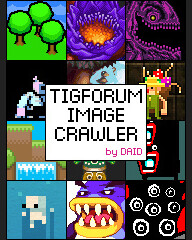GDC 2010: Please Finish Your Game
By: Derek Yu
On: March 24th, 2010
The inimitable Chris Hecker ranted at GDC this year (Chris worked on Spore but is now indie). His rant, titled “Please Finish Your Game”, addresses the issue of development time in the mainstream and indie communities. Specifically, he asks developers to pursue good ideas to their “logical and aesthetic extent”.
Chris elaborates on his rant here, and has added an email exchange he had with cactus about it afterwards (cactus is featured prominently in the rant).
-
cm
-
http://dwwilson.info DWWilson
-
http://oneeyedmonsters.wordpress.com Peevish
-
littleMel
-
http://www.klikscene.com/ Radix
-
Dan MacDonald
-
Snow
-
Skofo
-
http://quantumpotato.wordpress.com Xeno
-
Skofo
-
littleMel
-
DYH
-
DYH
-
http://www.mikengreg.com mike
-
http://www.mikengreg.com mike
-
Dogma
-
Anthony Flack
-
Derek
-
http://www.playthisthing.com Patrick
-
Galaxy
-
paul eres
-
Snow
-
Snow
-
Anthony Flack
-
paul eres
-
Snow
-
paul eres
-
http://chrishecker.com Chris Hecker
-
http://www.godatplay.com God at play
-
http://chrishecker.com Chris Hecker
-
http://flashpunk.net ChevyRay
-
http://flashpunk.net ChevyRay
-
paul eres
-
DYH
-
DYH
-
Snow
-
Bigpants
-
humpnik
-
Anthony Flack
-
FISH
-
http://www.klikscene.com/ Radix
-
Jonathan Blow
-
http://chrishecker.com Chris Hecker
-
http://www.klikscene.com/ Radix
-
Illiterate
-
http://chrishecker.com Chris Hecker
-
Snow
-
http://www.klikscene.com/ Radix
-
judgespear
-
paul eres

